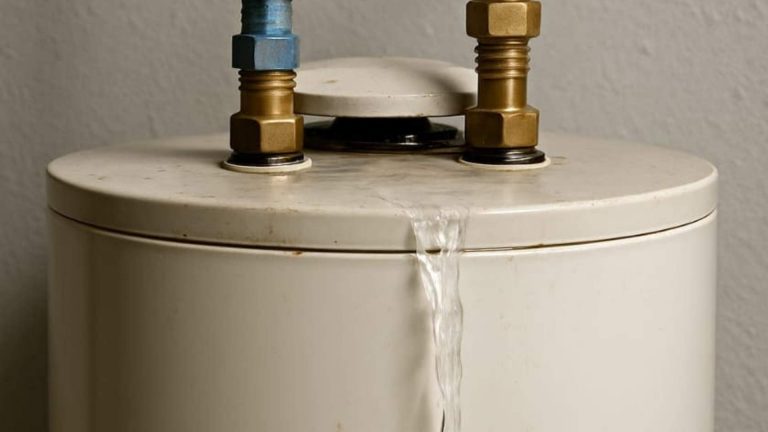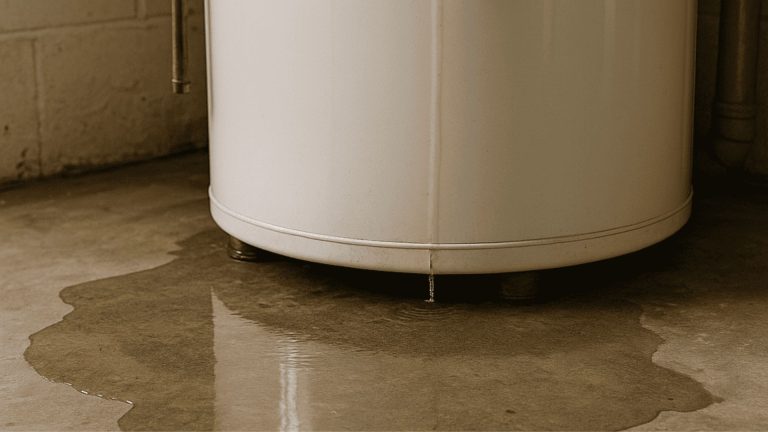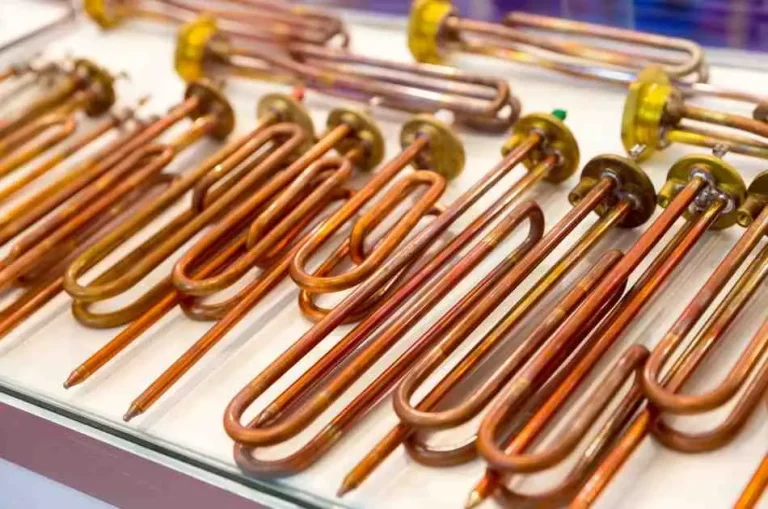Hot Water Heater Not Working?10 Ways to Fix It
Hot Water Heater Not Working, the problem could be more than an inconvenience. The effects could disrupt your daily routine. In this article, we’ll go over typical water heater issues, troubleshooting your water heater, and actions to repair a heater to hot. No matter if you own an electric water heater, a gas water heater or tankless heater. This guide will assist you in assessing your situation, identifying the reason behind it, and then finding an appropriate solution.
Why Is My Hot Water Heater Not Working?
If the water heater has stopped working, there are a variety of reasons why the water heater might have stopped working differently. It could be due to a problem with the water and power supply, a malfunctioning heater element, or even something as easy as an over-tripped circuit breaker. Troubleshooting a water heater starts by understanding the kind of water heater that you own in addition to noticing any noticeable indications like leaky water, a malfunctioning pilot light or the absence of hot water.
There are seasonal and environmental problems that could affect your appliance. For instance, extreme cold temperatures can cause the freezing of the pipes with water or trigger the pilot light for the water heater to turn off. Additionally, changes in the pressure of water can cause inconsistent heating cycles.
1. What Type of Water Heater Do You Have?
Before you begin to tackle solutions, determine if you are using water heaters, which are electrical, gas water heaters, and tankless heaters for water. Each has its unique parts and troubleshooting techniques. Gas-powered water heaters rely on a pilot light as well as a gas valve. An electric water heater makes use of electric heating elements.
Understanding the kind of water heater can help determine the best method to solve your problems. Be aware of the difference between the type of household water heater and commercial one since the repair procedures differ a bit.
2. Is the Power or Gas Supply Working?
One of the most common causes that your water heater might not work is the loss of gas or power.
- To test electricity-powered water heaters make sure that the electricity is connected to it and is on. A tripped or blow fuse could shut off the power.
- In the case of propane water heaters make sure you are sure that your gasoline supply is running and that the gas valve is operating and that it is operating and the the pilot light is turned on.
If none of them work, it is possible to replace a damaged fuse or rectify the wiring issue. Water and power problems are the easiest to resolve, yet they’re frequently overlooked.
Tips: Remember to Turn off the power to the unit before performing any maintenance, prior to inspecting electrical components.
3. Why Is the Pilot Light Off?
A defective pilot lamp is a frequent problem with propane water heaters. If it isn’t lit, then your heating element is not capable of warm water…
Possible causes are:
- A dirty thermocouple
- The gas line is leaking air.
- A malfunctioning gas valve
A light switch on the pilot lamp could temporarily restore the hot water. However, persistent failure signifies that the water heater is not working properly and may need replacement. The heater needs to be maintained. Also, make sure your home is equipped with a gasoline supply–a short interruption could cause the heating system that is hot not to function effectively.
4. Are Heating Elements Working Properly?
For electronic water heaters, the heating element in the electric circuit creates heat for the water. When the water isn’t heating either of the elements could get burned out.
The electric water heaters can be high-voltage devices So, always switch off the electricity prior to conducting a test.
- Test the resistance using an instrument like a multimeter
- Replace any defective components
Problems that concern issues with the water heater not heating can often be resolved with minor repairs. Electronic heating elements are often ignored until you’re with no the hot shower. These components deteriorate over time and are particularly affected in areas that have hard water.
5. Why Is My Hot Water Heater Leaking?
A hot leak in the water heater could signal a more serious problem.
Look for leaks in:
- Water heater tank seams
- The drain valve
- T&P Relief valve
Damage to your water due to the leak within the water heater could affect the floors and walls. If the whole heating tank has been damaged it is most likely that replacement is required. Look for indications of water being accumulating near the unit. This is usually the first sign of trouble.
Be cautious in the event that you notice that your tank is leaky out from its top, it could be caused by a defective pipe connection or broken inlet valve.
6. What If I Have Sediment Buildup?
The hard water deposits can cause deposits to build up inside the tank of the water heater in time. This could reduce the efficiency of heating and create popping noises.
Solution:
- Make sure you clean the tank of water every 6-12 months.
- Install a water softener or water filtering system in the event that your water has minerals with high levels.
The inability to remove sediment can result in the heater having to shut down in a short time. The loud, grumbling sound in the event that you turn on the heater is running on gas typically indicates the buildup of sediment.
7. Why Is the Water Temperature Inconsistent?
If you think your water is overheated or cold, your thermostat may be malfunctioning.
- Adjust settings until 120degF
- Reset the thermostat if temperature fluctuations persist
Unsteady, the temperature of your water is frustrating. It could be a sign that your water heater needs professional attention. Also, look for signs that the tap for hot water is running colder than other faucets. This could mean that there is a problem with the pipe and not only your heating element.
8. What If There Is Still No Hot Water?
After examining the gas or power, heating element, and thermostat, if there’s, there isn’t hot water. Suppose you’re not getting hot water. The heating element isn’t operating exactly as it ought to.
You could be working with:
- Control board malfunctioning
- Problems with wiring
- Thermostat malfunction
In these situations, troubleshooting your water heater could require the assistance of a specialist to stay clear of electrical dangers. Make sure you make use of insulated tools when examining the condition of an electrical heater.
9. Should I Repair or Replace the Water Heater?
Things to think about:
- Age: Between 10-12 years old? You might want to consider getting a fresh water heater.
- The frequency of problems
- Effectiveness: Newer models are more likely to run
If you’re constantly lacking hot water or hot water, or if you find that your water heater problem If the failure is recurring, replacing it with the latest new water heater may be the best solution. Electrical hot water or tankless water heaters might be a better choice. Look into energy-efficient models that can warm the water more efficiently.
10. How Can I Prevent Water Heater Issues?
Here are some maintenance steps to ensure the water heater is in good working order:
- The tank is cleaned every year to remove the hard-water. If your water heater is leaking, check for a buildup of minerals and sediment that could be causing the issue.
- Check the pilot light, the valves, the pilot light, and the pressure of the water.
- Make sure you are insulated for the hot-water tank during winter.
- Make sure to check the anode rod every 2 to 3 years.
Regular checks can prevent Common issues with water heaters, including leaks and failure to heat the water. And prolong the longevity of the water heater. Make use of a water filtering equipment if find your water has dirt or smells odd.
Summary: Key Takeaways
- Find out the kind of heater for the correct fix.
- Always shut off power prior to inspections.
- Examine for any issues with the heater element, pilot light as well as the gas source
- The tank should be flushed and drained regularly to get rid of any hard water accumulation.
- In the event that your water heater isn’t working, Take a look at the age of your heater and possible replacement options for a new water heater.
- Consistent problems in heaters for water require assistance from a professional
- Maintain the water heater running by conducting regular inspections.
- Monitor the temperature of water, leaking water, and weird sounds.
- Make sure you check the gas valve and the power supply for your heater to identify operational problems.
If your heated water heater is not functioning, consider checking for common reasons. It could be a bit overwhelming; however, with the proper diagnosis and regular maintenance, it is possible to restore comfort to your home.




One Comment